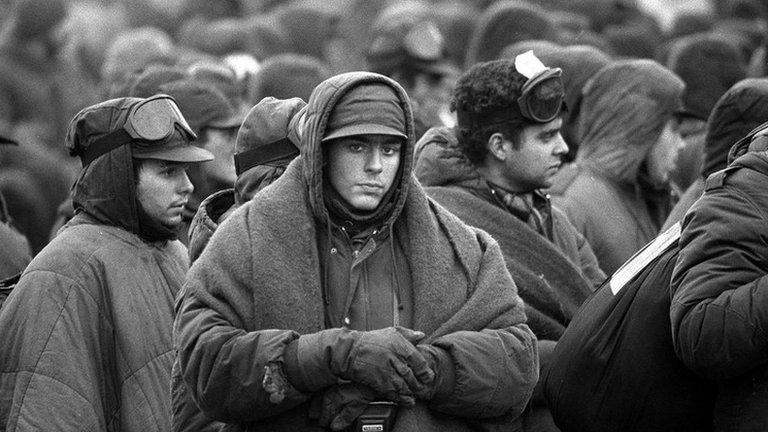Falklands War: Veteran's grief over losing 'family' in conflict
- Published
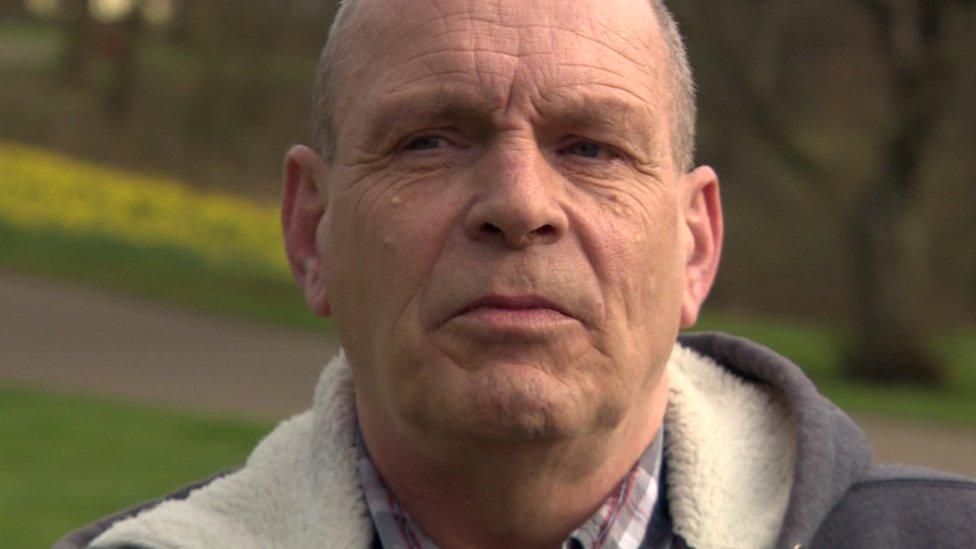
Nick Holden said returning home from the Falklands war was both "happy and sombre"
A Falklands War veteran has spoken of the sadness of losing crewmates who were "like family" to him while serving onboard a missile-hit warship.
The Argentine invasion of the British-held Falkland islands in the far south Atlantic began on 2 April 1982.
HMS Glamorgan was struck by an Argentinean enemy vessel just two days before the country surrendered.
Forty years on from the war, a former seaman from Lancashire has reflected on the bond between his crew.
Nick Holden, who grew up in Darwen, was aged 19 when he served as a seaman on the Royal Navy destroyer.
"It was a very long seven months," he said.
"I was part of a small team that were called the 'eyes and ears' of the ship and we would pick up radar from ships and aircraft from thousands of miles away."
Mr Holden, who now lives in Horwich in Greater Manchester, would help with the general maintenance of the warship when he was off-duty.
The 59-year-old told BBC North West Tonight: "We learned to look after each other.
"There was talk of 'if I do not get back home, can you tell my mum and dad this and that'. And we would say 'don't be daft, we will get back home'."

What was the Falklands War?
On 2 April 1982 Argentina invaded the Falkland Islands, a remote UK colony in the South Atlantic.
Argentina said it had inherited the islands from Spain in the 1800s and wanted to reclaim sovereignty of them.
Britain, which had ruled the islands for 150 years, quickly chose to fight, leading to a brief, but bitter war, lasting 72 days, under Margaret Thatcher's government.
Some 655 Argentine and 255 British servicemen died, as did three Falkland Islanders.
British forces regained the territory and ejected the Argentines on 14 June 1982.

Fourteen crew members were killed in an attack when the destroyer vessel was hit by a missile.
Mr Holden said: "We were ready for it, but we were wondering what it was going to be like.
"I certainly had a lot of reflection on whether I was going to come home or not.
"You feel a lot of sadness. In our eyes, we lost a lot of members of family."
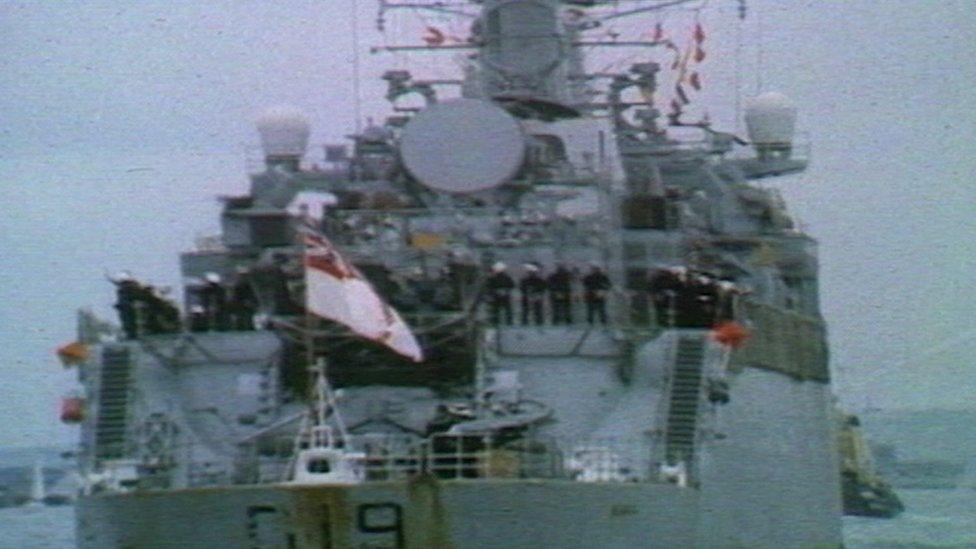
HMS Glamorgan was hit by a missile just two days before the Argentine surrender
The veteran said it was a "happy and sombre mood" when he finally returned to England, aged 20.
"It was so emotional that day," he said.
"I remember my mum was crying to be happy to see me home in one piece."

Why not follow BBC North West on Facebook, external, Twitter, external and Instagram, external? You can also send story ideas to northwest.newsonline@bbc.co.uk
Related topics
- Published4 April 2022
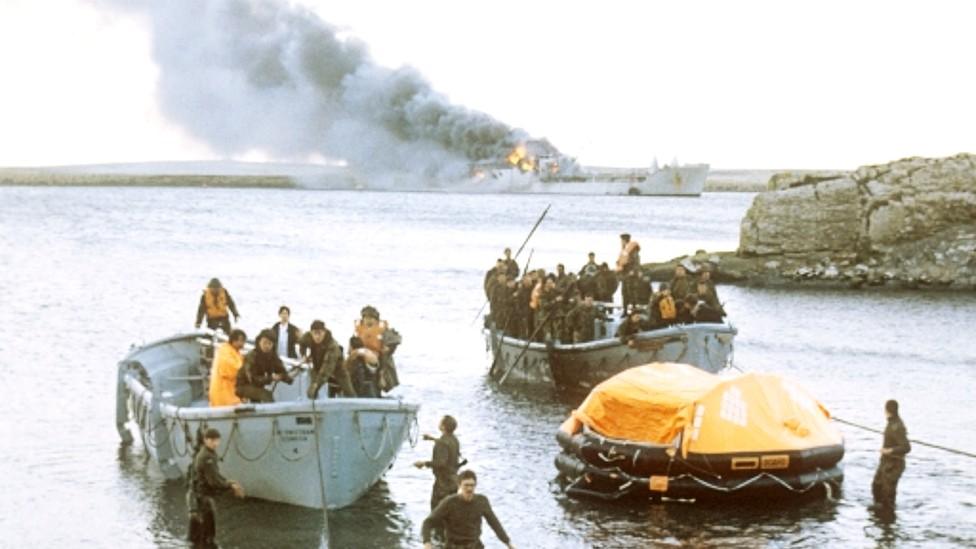
- Published2 April 2022
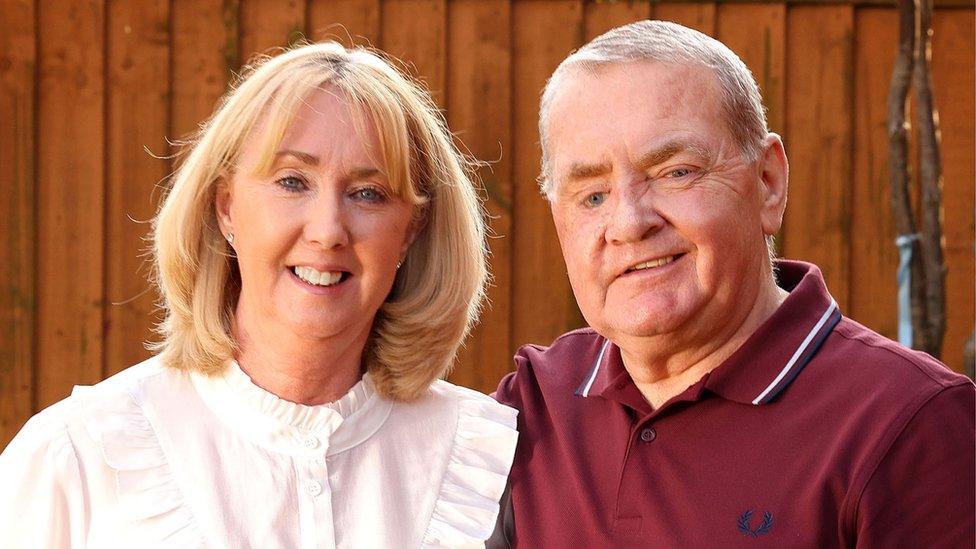
- Published20 January 2022
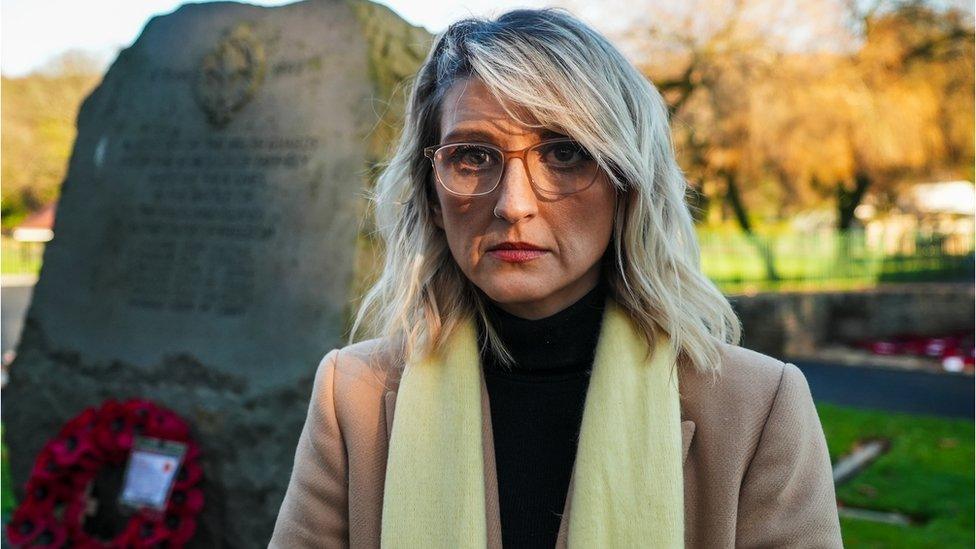
- Published20 January 2022
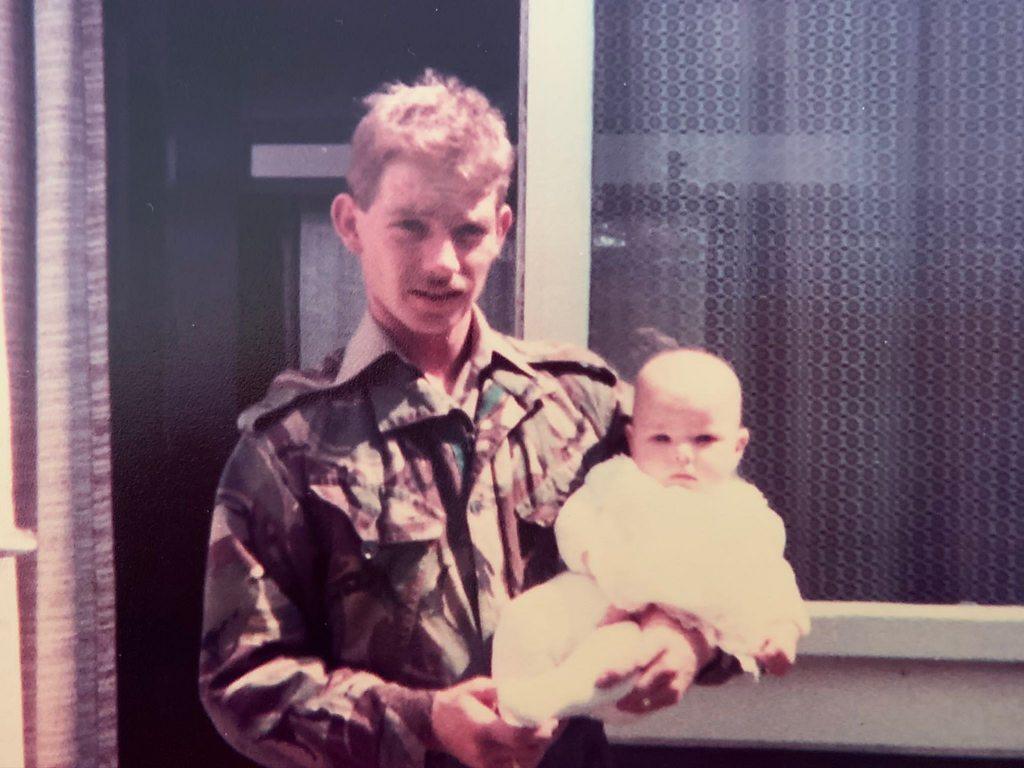
- Published10 January 2022
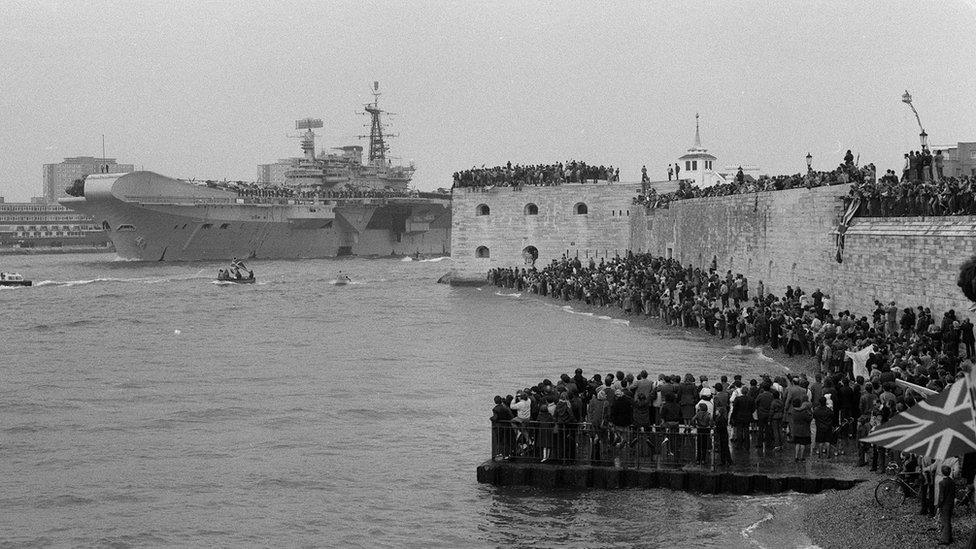
- Published3 January 2022
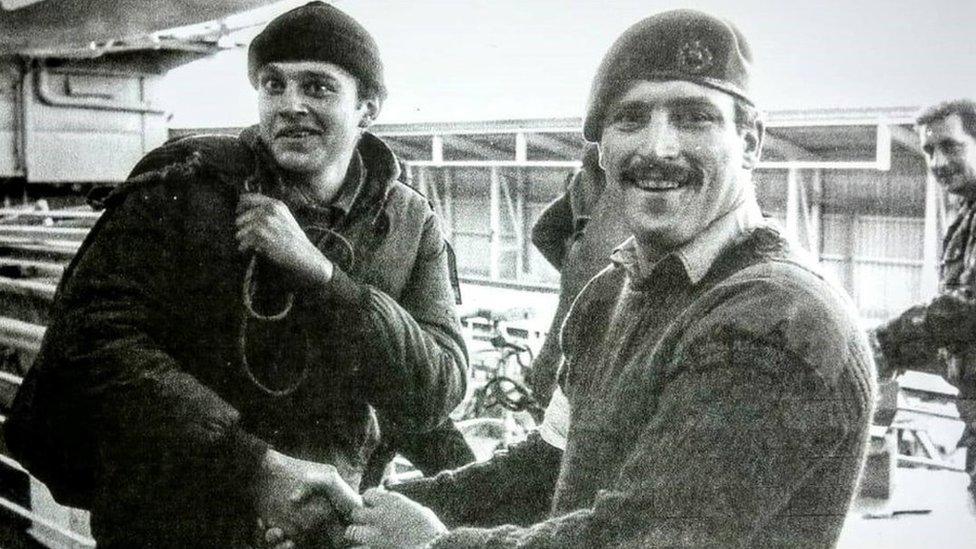
- Published8 November 2021
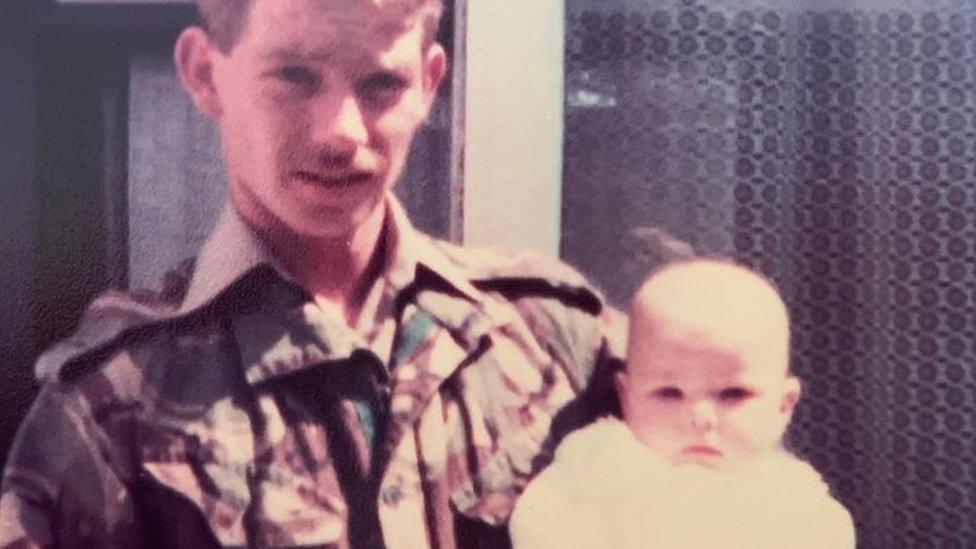
- Published14 September 2015
